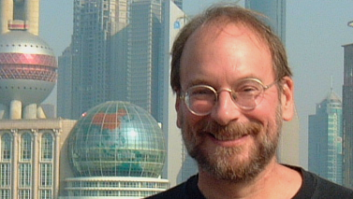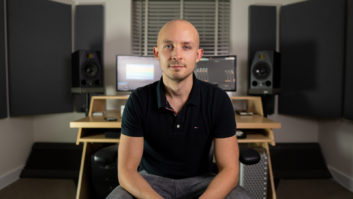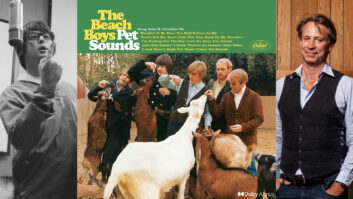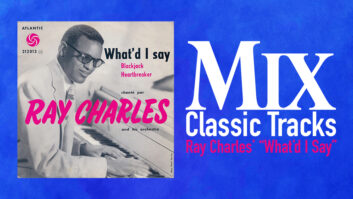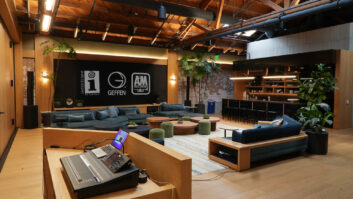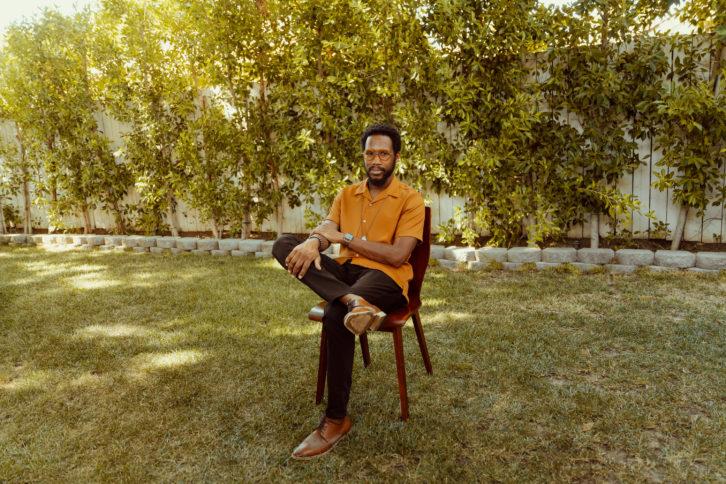
It’s been a couple of years since soulful keyboardist, songwriter and vocalist Cory Henry left the band Snarky Puppy and made his move from New York to California. He’s released two studio albums during that time: Art of Love and his latest, Something to Say, a powerful and varied collection of funk, soul and R&B originals that document a year in the life of the artist.
Something to Say is a perfect showcase for Henry’s singular talents. Three tracks feature Henry’s band the Funk Apostles (guitarist Isaiah Sharkey, drummer/percussionist TaRon Lockett, keyboardist Nicholas Semrad, bass player Sharay Reed, backing vocalists Tiffany Stevenson and Matia Washington); those songs were recorded pre-Covid. Along with Henry, the band plays some of the most exciting funk music being made.
Henry plays every part on the remaining songs, which came together, strangely enough, after it was safe to bring musicians into his studio. On those “solo” tracks, Henry’s creativity and versatility are totally unleashed. Though he may still be known primarily as a keyboardist from his Snarky Puppy days, Henry is a spectacular singer, and he says he learned a lot more guitar during the pandemic. His sounds are inventive, textured, yet somehow relaxed.
Thematically, the songs seem to encompass 2020’s many moods. Some tracks come off as clever and pretty light, some focus on love and loss, and still others address issues of social justice. On the lighter side, “Gawtdamn” is a funk track that grew from sort of a catch phrase.
“When I first moved to California, before I got my place, I remember being in an Airbnb, and as I was going out to get coffee and breakfast I remember walking down the street and saying, ‘Goddamn!’ I forget what made me say it, but when I said it I was like, ‘Wow, that’s a song.’ So I picked up my phone, put down a voice memo. Each song has its own story to it.”
However, Henry says he became concerned that repeating “Goddamn” would be “counter to his upbringing,” and that caused him to play with the spelling. It’s not difficult to find more emotional significance in songs such as “Happy Days,” “Anything 4 U,” “No Guns,” “Black Man” and “Say Their Names.”
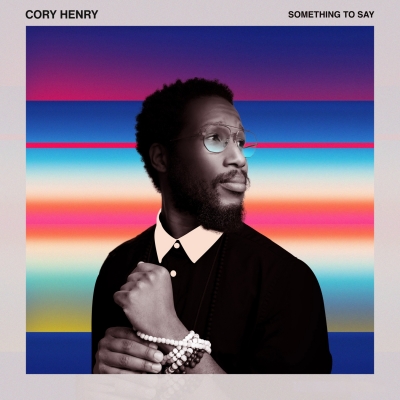
Henry worked away in his studio as the Earth kept turning, not only playing every part on many of the songs, but also engineering the lot on his own.
The personal studio Henry developed into a couple of years ago is the first one he’s had that is not in his own home. “I’ve had some kind of studio for about ten years. I also have a room in my house that I can use if I’m home and it’s late. But before I had an outside studio, I wasn’t as productive as I am now,” he says.
Henry’s workflow is built around a few well-chosen items that he’s become comfortable using. His platform for recording and rough-mixing is Apple Logic Pro, outfitted with a selection of plug-ins from UAD, Waves and others.
“In Logic, I like that all of my key commands and shortcuts are in one place,” Henry says. “And I like my editing features. When I’m editing vocals, I can work really fast, and I like the way I can comp vocals. Sometimes you don’t mind taking the long way around, but being able to just record over the track and use a dropdown and cut the track up—it took me awhile to get there, but it’s a good workflow, and I get a good sound out of Logic.”
Henry listens on JBL monitors and records via a few favorite microphones, including a Shure SM7b for vocals, a stereo pair of Neumann KM184 overheads, as well as a Shure drum mic kit and a few others. The keyboards Henry is best known for playing—including Hammond organ, Fender Rhodes, Clavinet, etc.—are all electronic and all taken direct.
“The room itself is a very small, very intimate space,” says Henry, who has also been busy producing other artists’ projects, including a couple of tracks on Ledisi’s latest album, Wild Card. “It always has a few of my keyboards set up, plus drums, bass, guitar—just the essentials. The reason I love this room is I feel like it gives me the ’70s vibe. It’s like walking into 1974. Sonically, it’s built well with a lot of wood all around. It’s my favorite place to be right now. Production is the name of the game for me, especially since the pandemic.”
Again working in Logic, Henry put together rough mixes of his new tracks before sending them to mix engineer Danny Garibay (Simon Curtis, Kossisko, Alice and the Glass Lake). Artist and engineer are both based in the Los Angeles area, but the two collaborated virtually.
“Leading up to Something to Say, Cory and I had already established a workflow on mixing his last two albums, Art of Love and Art of Love (Live in LA),” Garibay says. “The goal for me on Cory’s records is to continue to push the envelope in mixing funk, gospel, blues, jazz in a sonic modern representation of Cory’s ‘future soul’ sound.
“One way I do this is by applying modern mixing techniques used in other pop genres,” he continues. “I start with drums; drums are everything. As much as drums can define eras and genres, they can also blur them, which is why I’m very meticulous for drum feel and sound. Then I move my way up to the rest of the groove section, wrapping the instrumentation around Cory’s keys and vocals. ‘Happy Days’ and ‘Switch’ are good examples of this on the album, as they lean into applying mix processing techniques of past traditions with a modern approach.”
Garibay works in his two-room Hollywood recording/mixing studio, operating under the production company name lo͞omənəs. “I do all my mixing in the box in Ableton,” he explains. “Personally, I find Ableton seamlessly offers more than just one way of working and allows me to achieve a desired result or experiment in ways other DAWs don’t.”
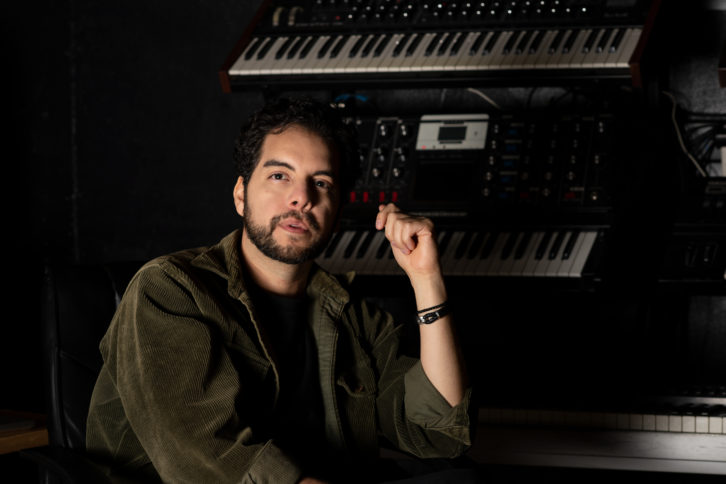
Garibay’s go-to plug-ins include products from FabFilter, Waves and Valhalla, as well as Ableton’s stock plugs. His control room is outfitted with Yamaha NS-10Ms monitors powered by Bryston 3B ST amps. “I also use a KRK 12 sHO subwoofer that I switch on and off with my NS-10s using my studio controller, and KRK V8 monitors for a shift in perspective. At the end of the mixing process, the vibe of the mix really has to move me. Otherwise, I can’t expect it to move anyone else.”
Something to Say was released on October 30, and Henry came together with the Funk Apostles on Halloween for a virtual release party that was broadcast from Apogee Studio (Santa Monica) and mixed by Bob Clearmountain. It was the first time the musicians had played together in seven months. “It was a lot of fun after we hadn’t played for so many months,” Henry says. “It felt especially good to play the new stuff, some of which we were playing together for the first time live. There was a lot of good energy.”
Henry notes that his release concert seems like it happened years ago even though, at the time of our interview, it had been only a month. This observation is yet another insightful comment on the nature of a musician’s life during Covid, and during the horrific events and subsequent protests that rocked the U.S. during the summer of 2020.
“Mixing Something to Say, was emotional and surreal, as the pandemic, protests and riots were happening simultaneously,” Garibay says. “On some days, there were protesters marching at the doorstep of my recording studio as I was mixing songs like ‘No Guns,’ ‘Black Man’ and ‘Say Their Names.’ I’m very grateful and honored to be a part of Something to Say. Cory Henry is one of the greatest musicians of our time, and the album couldn’t be more timely.”
